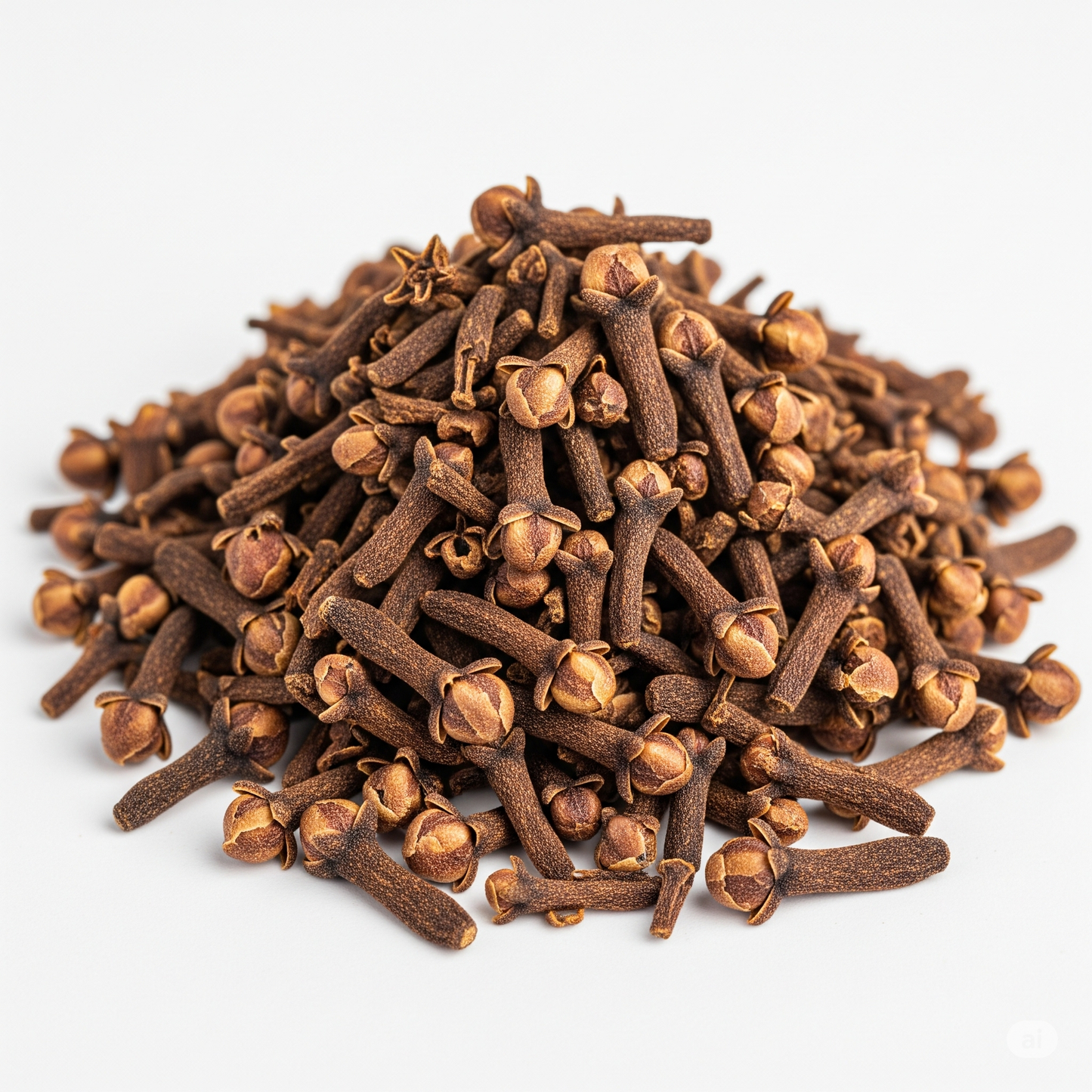Wadi
Clove
Clove
Couldn't load pickup availability
Primary Uses:
1. Culinary Uses:
- Used as a spice in various dishes
- Used in pickling and marinades
- Used in baking and desserts
2. Flavoring Uses:
- Used to add flavor to beverages such as tea and mulled wine
- Used in spice blends such as garam masala and pumpkin pie spice
- Used in savory dishes such as stews and curries
3. Aroma Uses:
- Used in aromatherapy for its warming and comforting scent
- Used in perfumes and colognes
- Used in dental products such as toothpaste and mouthwash for its antiseptic properties
Other Uses:
1. Medicinal uses: Cloves have been used for centuries in traditional medicine to treat a variety of ailments such as toothaches, digestive issues, respiratory problems, and inflammation.
2. Culinary garnish: Cloves are commonly used as a spice in cooking, particularly in sweet dishes such as cakes, pies, and fruit compotes. They are also used in savory dishes such as stews, curries, and marinades.
3. Insect repellent: Cloves have a strong, pungent aroma that repels insects such as mosquitoes, flies, and ants. They are often used in natural insect repellent sprays and candles.
4. Folklore uses: In many cultures, cloves are believed to have magical properties and are used in various rituals and ceremonies. They are also used in traditional medicine to ward off evil spirits and promote good luck.
5. Ornamental uses: Cloves are often used in floral arrangements and wreaths due to their fragrant aroma and attractive appearance.
6. Dyeing agent: Cloves can be used as a natural dyeing agent to create shades of brown and orange in fabrics and textiles.
7. Religious uses: Cloves are used in various religious ceremonies and rituals, particularly in Hinduism and Buddhism. They are often offered as a symbol of devotion and used in prayer beads and garlands.
Caution:
1. Allergic reactions: Some people may be allergic to clove and may experience symptoms such as itching, swelling, and difficulty breathing.
2. Stomach irritation: Clove oil can cause stomach irritation, nausea, and vomiting if consumed in large amounts.
3. Blood thinning: Clove oil can act as a blood thinner and may increase the risk of bleeding in people who are already taking blood-thinning medications.
4. Skin irritation: Applying clove oil directly to the skin can cause irritation, redness, and burning.
5. Drug interactions: Clove oil may interact with certain medications, including blood thinners, anticoagulants, and diabetes medications.
6. Toxicity: Consuming large amounts of clove oil can be toxic and may cause symptoms such as seizures, liver damage, and respiratory failure.
Share


